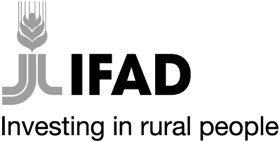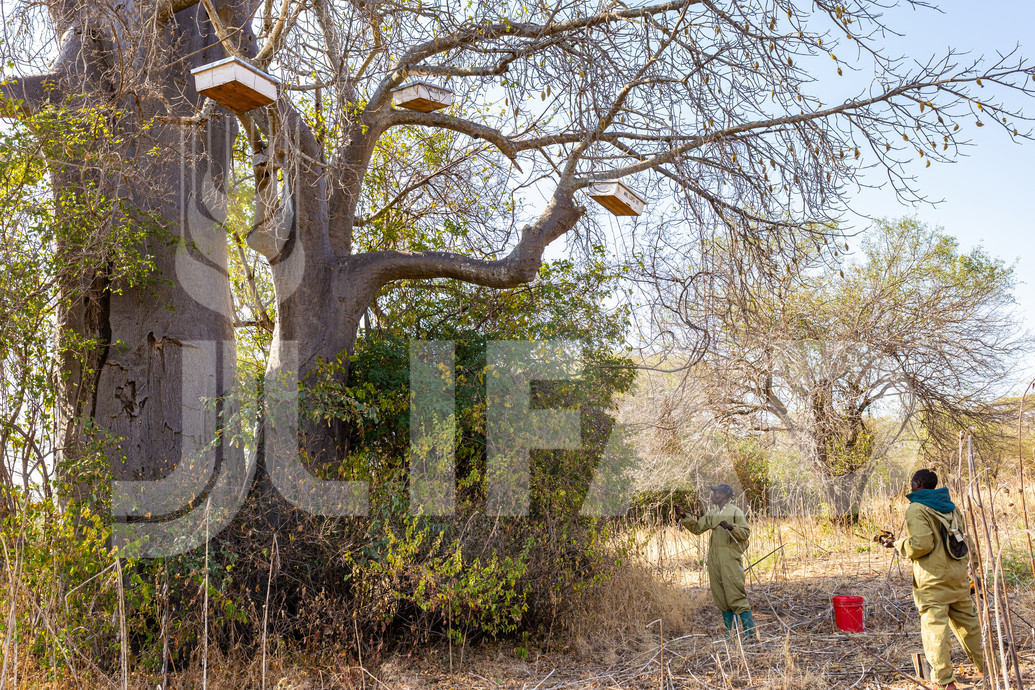| ID: | 86816 |
|---|---|
| Country: | Tanzania |
| Title: | Tanzania - Reversing Land Degradation trends and increasing Food Security in degraded ecosystems of semi-arid areas of Tanzania (LDFS) – July 2023 |
| Description: |
Shakwa and Isaack harvesting honey from the hives. Unlike the traditional hives, which are found in the cravats of trees, these are boxes hang on trees located in the forest. The idea is to enable the community to monitor the forest while monitoring their hives. Modern bee hives offer a more bee-friendly and efficient approach to honey harvesting. Beekeepers can monitor and manage the hive better, leading to higher honey yields while minimizing stress on the colony. However, some traditional techniques are still valuable. For instance, some beekeepers utilize top-bar hives, a simpler version of modern hives that can be a good entry point for small-scale beekeeping. The Resilient Food Systems programme under Reversing of Land Degradation Trends and Increasing Food Security in Degraded Ecosystems of Semi-arid Areas of Central Tanzania (LDFS) project seeks to support food production and security (in terms of quantity, accessibility, and quality) in Tanzania. This entails addressing drivers for unsustainable land management and land degradation as well as biodiversity loss and support adaptation strategies to climate variability in the agricultural sector, fostering small farmer’s and pastoralist’s resilience to climate and other shocks. The project focuses on geographic areas with high levels of poverty, food insecurity, malnutrition of children under 5 years old, land degradation and low average annual rainfall, as well as areas where there might be conflicts among communities related to access to and use of crop, grass and forest land and water resources. It currently covers twenty-two villages in five districts in semiarid areas of Mainland Tanzania, including Kondoa, Nzega, Magu, Chemba and Mkalama District. |
| Size: | 28.82 MB; 6000 x 4000 pixels; 508 x 339 mm (print at 300 DPI); 1588 x 1058 mm (screen at 96 DPI); |
| Show more details: | Imani Nsamila |
| Copyright: | ©IFAD/Imani Nsamila |
| Categories: | New from East and Southern Africa |
| URL: | https://www.ifad.org/en/ |

